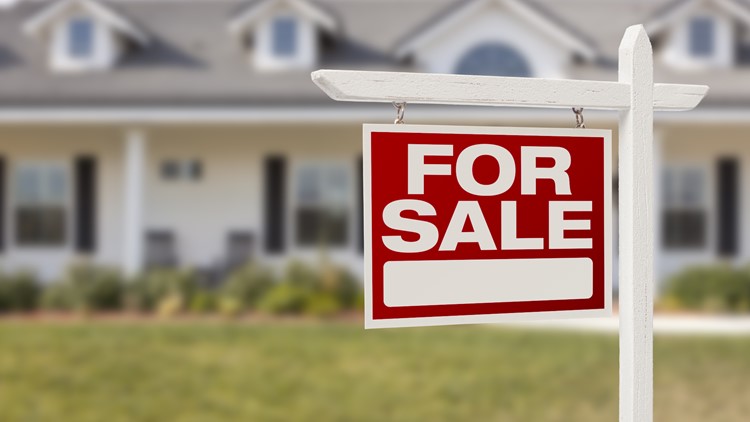DALLAS — Is the housing market starting to become more normal? Not that long ago, we were regularly getting reports of buyers meeting just about every seller’s demand, and even offering extraordinary offer increases in hopes of outbidding a crowd of competitors trying to make a deal for the same property. Many were making expensive decisions on the spot and were waiving contingencies in order to appease sellers and move the transactions along as quickly as possible. It wasn’t just existing homes; the market for new homes was competitive and frothy as well.
But in just the span of several months, the overall real estate market has become much less frenzied. Redfin is seeing that buyers have more ability than before to negotiate and that they are “increasingly keeping rather than waiving inspection and appraisal contingencies. ” In other words, normal stuff is happening again.
Even though those prior conditions became the cost of doing business, they were abnormal. Redfin reports that contracts to buy homes have been getting ripped up at a rate we haven’t seen since the beginning of the pandemic. The site reports that in major Texas markets, these significant percentages of pending home sales fell out of contract.
Houston: 22. 9% San Antonio: 20. 3% Dallas: 19.
9% Austin: 17. 9% Also in June, John Burns Real Estate Consulting ’s research director shared new stats showing that Texas had the highest rate of homebuyers canceling contracts on new homes being built. A common denominator: June, which was also the month when we saw the highest mortgage rates since 2008 .
As part of its analysis of homes falling out of contract, Redfin raised the possibility that some people who made offers may have no longer qualified for the loan or felt like they couldn’t afford the loan by the time the deal was set to close. If you’re approved for a home loan, your offer is accepted, and you have a signed contract, it is standard with many lenders that they will lock in your interest rate for 30 or 60 days. The way a rate lock works is that it holds your percentage steady even if rates overall rise.
Even better: The lock may also allow your rate to drop if rates go down before you close. Some lenders even have longer rate locks that you can get while you’re still shopping for a house. But experts warn you to always read the fine print because those programs can sometimes be canceled or changed without warning.
If you’re already under contract to buy a home and your lender hasn’t told you your rate is locked, you may want to ask for that in writing. If you are just starting out in the home buying process, find out if your preferred lender offers rate locks. If so, do they put that in writing? That’s always important.
Is the rate lock already built into the loan fees? Or do they charge extra for a lock? And if they do, how much? You can ask the same questions for rate lock extensions, in case you need extra time before closing. Some buyers actually pay extra if they need to make their rate lock long enough to get them to closing. Why would you do that? In this article from 2021, Bankrate lays out a hypothetical situation in which you would spend several hundred dollars to extend a rate lock versus thousands more in the interest payments for the life of the loan if you don’t extend the rate lock to closing: “Typically, an extension costs 0.
375 percent of the loan amount…if the loan is $100,000, then a 15-day extension would cost $375 — and then you can extend again. If rates have gone up, it might be cheaper to pay the extension fee upfront…consider if you lock in a 3. 2 percent rate on a 30-year loan for $240,000.
At this rate, the total interest you’d pay over the next 30 years would be just over $133,650. Now, let’s say you don’t lock your rate and rates rise to 3. 4 percent by the time you close.
For the same mortgage, you’d pay more than $143,167 in interest — a difference of about $10,000. ”.
From: wfaa
URL: https://www.wfaa.com/article/money/business/right-on-the-money/as-interest-rates-rise-do-you-have-the-homebuyers-helper/287-6acc0720-4a1c-4a67-a2c0-7d38821bb13c



